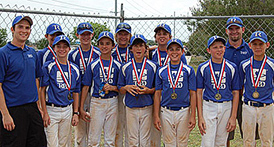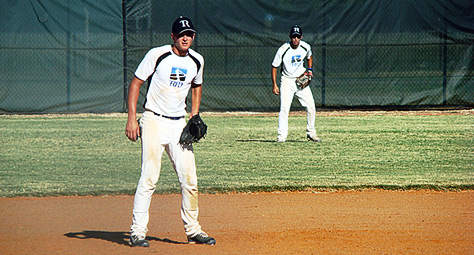Youth Baseball Players: Get Out of Your Head
Your team is down by one run in the 9th inning of a championship game. There are two outs and you’re next up to bat with a runner on second. Your heart is pounding. Their pitcher has been ‘on’ all night. If you can just get your runner home, you can send the game to extra innings. You’ve been crushing hits all year; this should be routine. It doesn’t feel routine though. What do you do? Do you split the outfielders or do you choke?
Everybody chokes at least once in his or her life whether it be in a classroom, interview, on a stage or on a field. What makes something that you’ve practiced a countless number of times such a difficult task all of a sudden? In his book How We Decide, Jonah Lehrer describes it simply as “thinking too much”. He says, “When a person gets nervous about performing, he naturally becomes extra self-conscious.” By focusing on himself and his potential mistakes, actions are being scrutinized that are best performed on autopilot. A pianist forgets how to play a difficult song. An actor freezes on stage in the middle of a performance. A batter concentrates too much on his technique and goes down swinging. “The worst thing about choking is that it tends to be a downward spiral,” says Lehrer. “The failures build on one another and a stressful situation is made even more stressful.”
So how do you avoid choking? A recent ESPN article, “I Think Therefore I Choke” by Jaimal Yogis, looked to answer this exact question. They found an answer at the Institute of HeartMath in Boulder Creek, California. By incorporating the institute’s methods for ‘coherence’, NFL kickers were breaking records and professional golfers were sinking birdies at Pebble Beach. This method involves taking deep breaths and “visualizing each breath entering and exiting”. The heart rate will then lower to a level at which the body performs at its peak. Practicing this often, and in stressful conditions, trains the mind to enter coherence during high-pressure scenarios.
In a nutshell, coherence involves getting out of your head. This is the same approach that Trent Reynolds Player Development takes in its Commit to HitTMᵀᴹ Process. The less you focus on what needs to be done, the more likely it is that your well trained subconscious will get it done for you. Now you’re back in the championship game. You’ve stepped up to the plate and it’s just you and the pitcher. He gives a nod and begins to wind-up. What do you do? You stop thinking. You send it over the wall.








